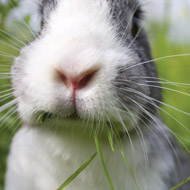
Vets urged to use their clinical judgement
The VMD has issued advice to vets on treating rabbit haemorrhagic disease virus (RHDV-2) amid concerns over a lack of vaccine.
They say that in the absence of a medicine to treat RHDV-2, vets can either:
- Prescribe another medicine in accordance with the prescribing cascade, or
- import a vaccine under the VMD’s Special Import Scheme (SIS)
A recent analysis found that the RHDV-2 virus has been present in the UK since 2010. Currently there is no specific vaccine for this variant, and conventional RHD vaccines provide only limited protection.
The VMD report that some vets are importing vaccines authorised against RHDV-2 from other EU countries under the SIS. These include Filavac VHD K C+V, Novarviap and Cunipravac RHD Variant.
However, no information is available on the safety and efficacy of these vaccines for rabbits, including when they are used at the same time as other vaccines (e.g. classical RHDV vaccines).
The VMD urges vets to use their clinical judgement in individual cases to decide the most suitable vaccination protocol.
‘The vet should contact the vaccine manufacturer directly for further information,’ they add.



 The Veterinary Medicines Directorate (VMD) is inviting applications from veterinary students to attend a one-week extramural studies (EMS) placement in July 2026.
The Veterinary Medicines Directorate (VMD) is inviting applications from veterinary students to attend a one-week extramural studies (EMS) placement in July 2026.